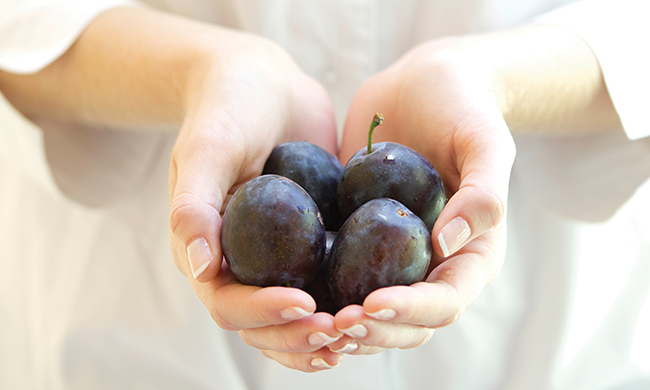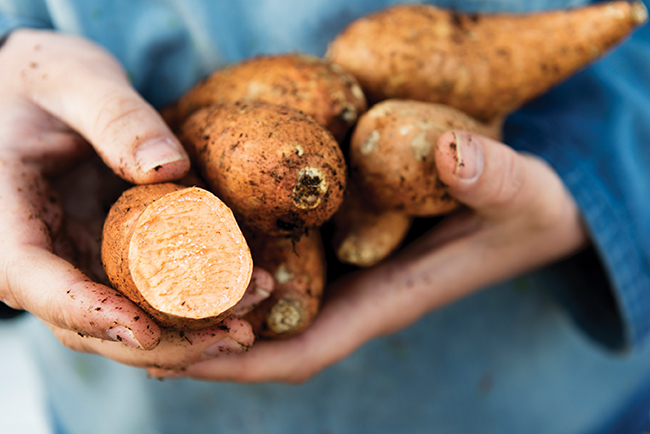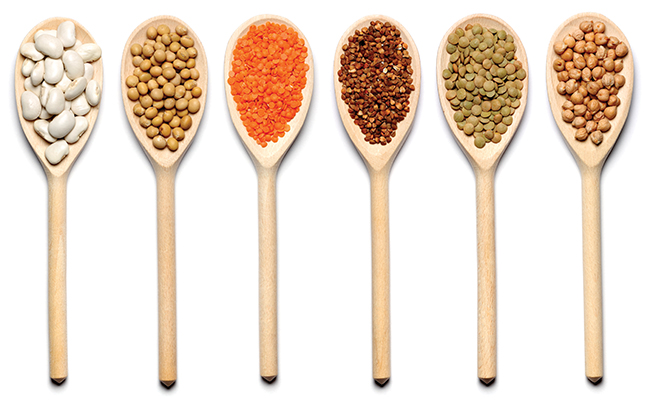Common wisdom tells us we need plenty of fibre to avoid constipation – so how can you keep things moving when living gluten-free? Nutritionist Kate Arnold shares her tips…

Constipation is never pleasant. It can make you feel sluggish and fed up. According to recent research carried out for the makers of constipation treatment Dulcolax, the condition – which studies have shown affects one in seven adults at some point in their lives – makes a majority (57%) of those polled feel uncomfortable. Meanwhile 45% of respondents said it makes them bloated, 35% reported feeling less confident as a result of constipation, and almost a fifth (17%) said it causes them to feel depressed.
Some people on a gluten-free diet, and coeliacs in particular, can find that without high-fibre grains their digestion can slow down – meaning they end up with constipation and also piles. But there’s no need for this to be the case, and some tweaks to your diet can be all you need to help resolve the issue of constipation.
A lesson in the basics
To keep your bowel moving you need two main components, both of which help push food through your digestive tract. These are soluble fibre and fluid.
Fibre is crucial in terms of maintaining a healthy weight and low cholesterol levels, may help to prevent colon cancer, and supports a good level of health-boosting gut bacteria. While insufficient fibre consumption is often associated with a gluten-free diet, the truth is that most of us aren’t eating enough of it. We are meant to eat 23-25g of soluble and/or insoluble fibre per day, but the average daily intake in the UK is only around 15g daily.
With the majority of people not getting enough fibre to begin with, matters get worse when we make the switch to gluten-free – because most of our fibre comes from wheat-based cereal and bread. Remember though, you can increasingly find gluten-free products containing alternative grains like rice and there are other fibre sources, such as apples.

Boosting fibre intake naturally
There are plenty of foods that can help prevent constipation (see box, bottom left) – but always keep in mind that consuming enough fluid and fibre remains pivotal. Because no two people are the same, foods will affect different people in different ways. If for any reason you don’t like – or can’t eat – some of the foods in the list, then adding something like psyllium husks can really help to increase your intake of daily soluble fibre.
Good amounts of gut flora are key to a healthy gut, because they help digest food and keep the immune system in shape. Eating probiotic yoghurt or a raw salad may help reduce that bloating feeling by encouraging friendly bacteria to grow.
Drinking six to eight glasses of clear fluid every day can help prevent constipation in the long term, as can some kind of daily physical activity, such as walking, yoga, running – or even some simple stretches. Moving more helps peristalsis, the process of the muscles of your gut contracting to move food through.
Taking the right advice
There are many old wives’ tales told about certain foods causing constipation. However we need to be careful that we are not falling into the trap of listening to the wrong advice.
Dairy products
There is a longstanding myth that dairy products ‘bind you up’. This is partly right, partly wrong. Dairy is high in fat and low in fibre, but it shouldn’t cause problems as part of a balanced diet. However, if you eat a lot of cheese and very little fibre then it may well make constipation problems worse. High amounts of lactose (the sugar in milk) can also cause gas even if you’re not lactose intolerant. So dairy produce in moderation is fine, but if you’re having a bout of constipation it might be worth having a few days without it.
Coffee
There is no doubt that too much coffee can make you dehydrated, which in turn can lead to constipation. Despite this, if you are drinking one glass of water for each cup of coffee then you should be fine – but to be on the safe side, try not to drink more than two weak cups per day.
Alcohol has a similar dehydrating effect, so likewise try to drink a glass of water for each alcoholic drink you take on board, in order to keep yourself properly hydrated.
Salt
We know that lots of salt is bad for us, particularly for our blood pressure, but it also affects the gut. Foods high in sodium can tie up the water needed to dilute the salt, keeping it from pushing waste through the body. Choose foods low in added salt, and if flavouring with salt at home make sure to use sea salt – packed full of vital minerals – rather than refined table salt.

Some of the best foods to manage and prevent constipation:
- Fruits, including blueberries, prunes, kiwis, pears and plums
- Vegetables including peas, broccoli and edamame beans
- Seeds, for example flaxseed
- Popcorn (it’s best to pop your own corn and add only a little sea salt)
- Oatmeal
- Chickpeas
- Nuts
- Pulses
- Sweet potatoes
For more information on the causes of constipation, visit www.myconstipationrelief.com
About the author
 Kate Arnold is a nutrition consultant, health writer and motivational speaker, with nearly two decades of experience working with clients ranging from charities and local government to media personalities. She specialises in gastrointestinal health and fatigue disorders, with a particular interest in the human microbiome.
Kate Arnold is a nutrition consultant, health writer and motivational speaker, with nearly two decades of experience working with clients ranging from charities and local government to media personalities. She specialises in gastrointestinal health and fatigue disorders, with a particular interest in the human microbiome.
